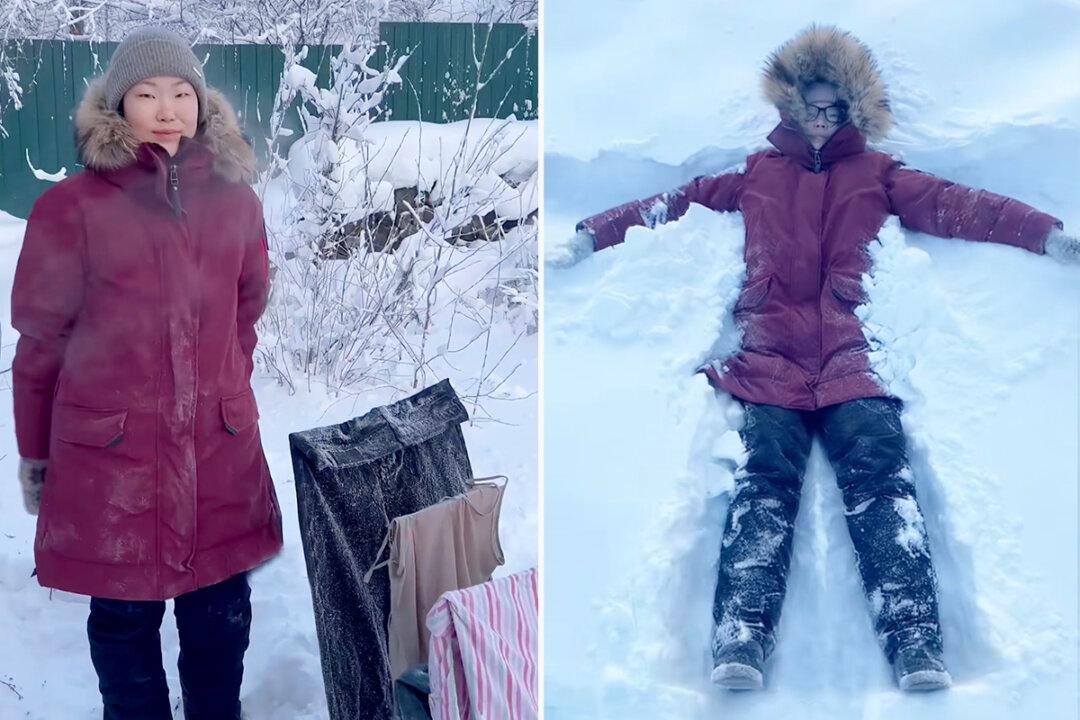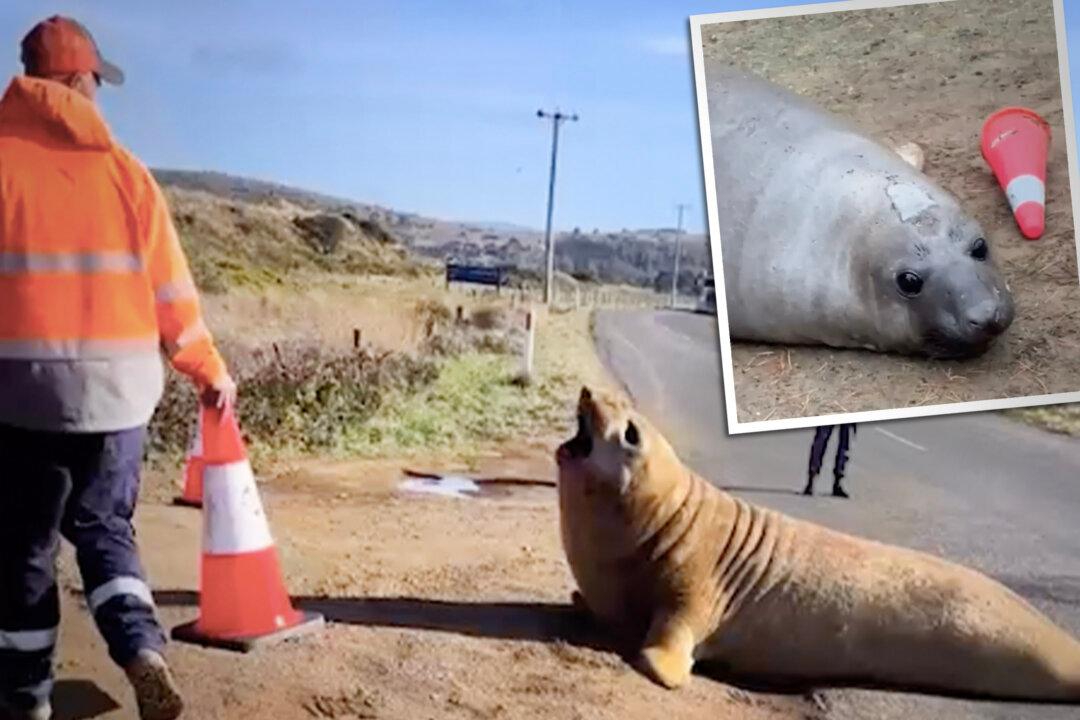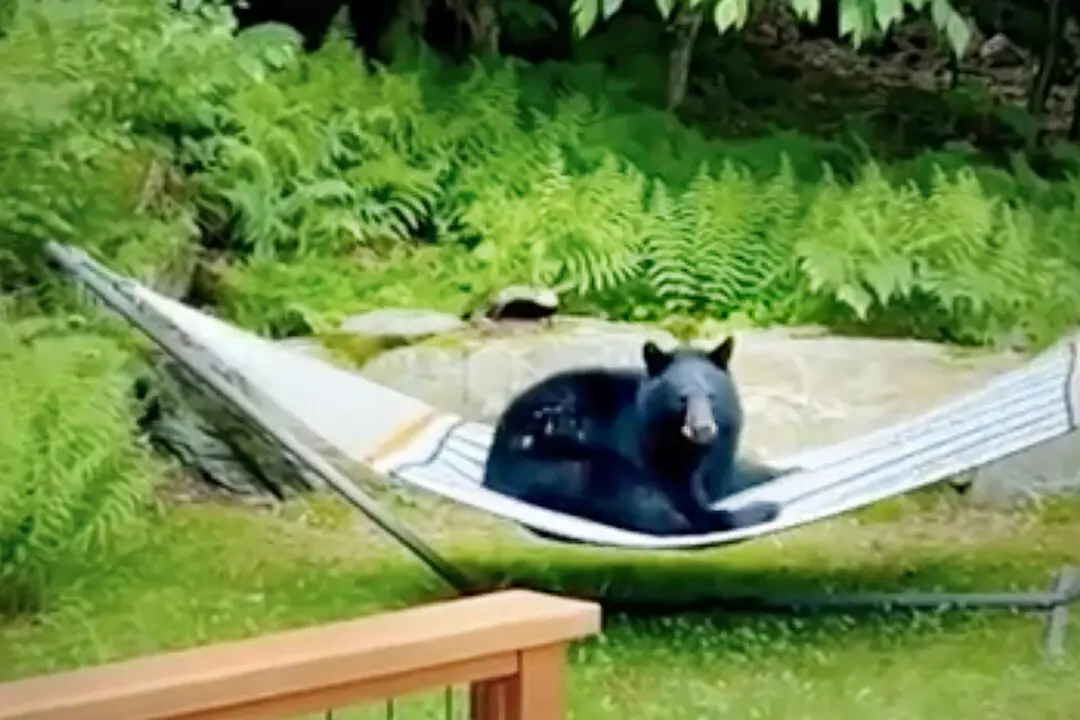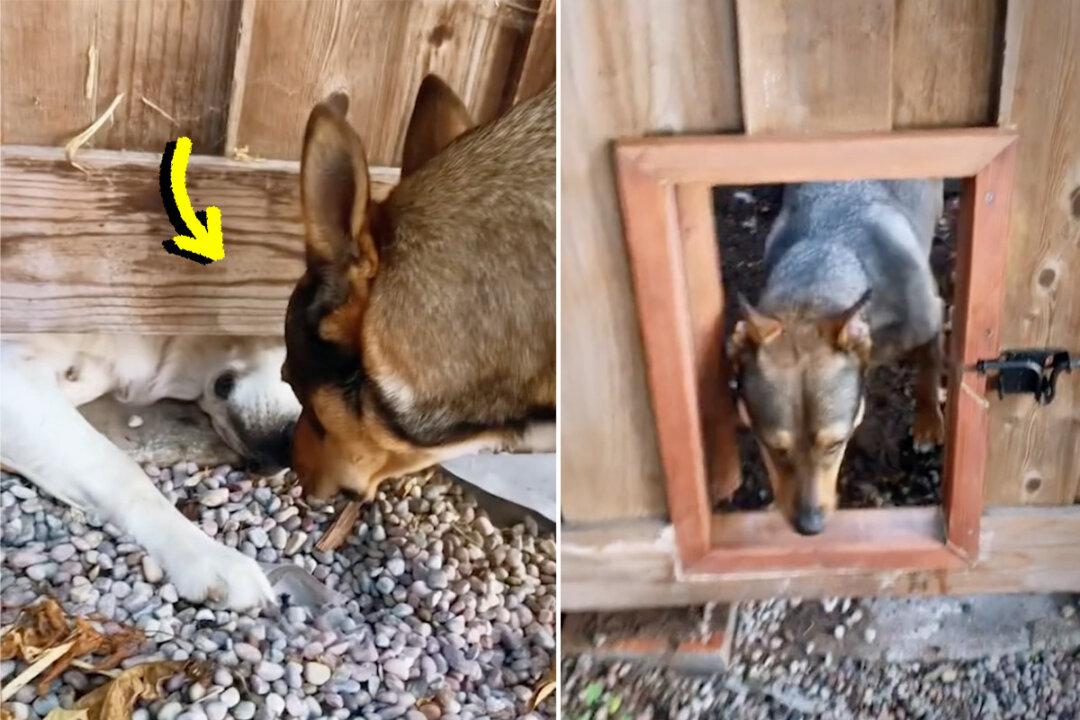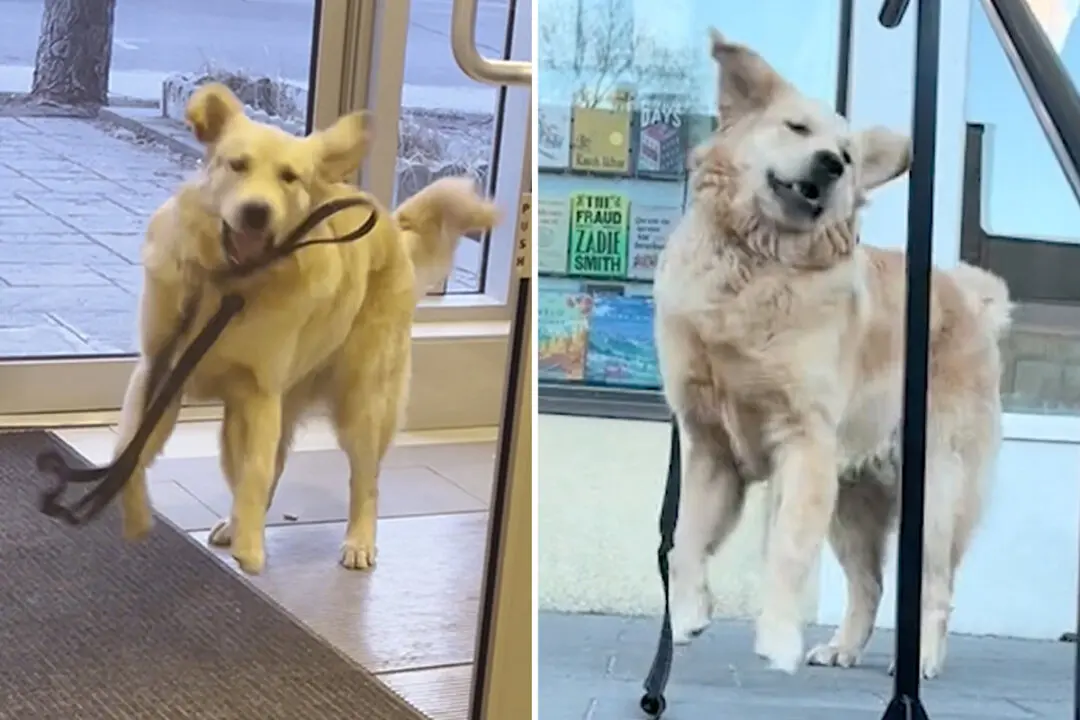A woman who grew up in one of the coldest places on Earth—where the temperature drops to as low as minus 50 degrees Celsius (minus 58 degrees Fahrenheit), and where food, when kept outside, freezes solid—has shared her experience.
Yulia Lytkina, 35, was raised in the Sakha Republic in the east of Russia, where water freezes before it even hits the ground.

